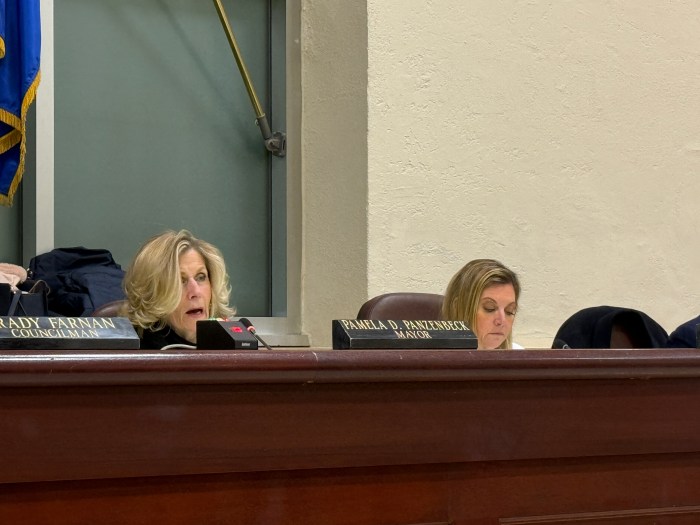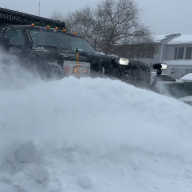“Abuse.” “Ridiculous.” “Horrible.”
That’s how Nassau residents in south shore communities like New Hyde Park, Floral Park, North Hempstead and Hempstead describe the noise they hear from airplanes taking off and landing at nearby John F. Kennedy and LaGuardia airports.
U.S. Rep. Laura Gillen, who represents them in Congress, is trying to do something about it.
Gillen said she has requested a meeting with new Federal Aviation Administration official Bryan Bedford to address the “serious impact of aviation noise” on the south shore residents she represents.
“Communities across Nassau County’s South Shore face persistent levels of noise pollution affecting families in neighborhoods directly under major flight paths,” Gillen, a member of the congressional subcommittee on aviation, said in a statement. She has been vocal about the issue in the past, raising the concern at congressional hearings and advocating for technologies to reduce noise.
“Residents in several communities in the flight paths of these airports are exposed to unacceptable noise pollution,” Gillen wrote in a letter to Bedford requesting a meeting. “Exposure to significant levels of noise pollution not only harms residents’ quality of life, but it can also have a significant impact on their health and wellbeing, including disrupting their sleep, harming children’s focus and outcomes, and can even be associated with increased risk of cardiovascular disease.”
Her letter echoes multiple recent lawsuits from Hempstead and North Hempstead against the FAA and Port Authority, and what south shore residents said at a Northwest Bayside Civic Association virtual roundtable on July 23, when voicing complaints to FAA officials.
“I have been in treatment for cardiac issues that the doctor said are 100% environmental. Stress levels over the top,” resident Kim Russo commented during the Zoom meeting. “I pay high taxes [but] can’t keep my windows open. [The planes] start before 6 a.m. and sometimes go till late at night. I have to wear noise-cancellation earbuds all day. I can’t focus.”
“Quality of life is horrible,” she continued. “I know it’s affecting not only my health but all family members and our pets.”
According to local officials and Gillen, flights over these communities are sometimes as frequent as every 90 seconds, and complaints about airplane noise have nearly doubled compared to pre-pandemic levels. Some residents in the meeting claimed a plane flew over their home every 60 seconds during some parts of the day.
As those advocating for decreased noise volume say they know well, getting to the bottom of the issue isn’t an easy battle. After touring the New York Terminal Radar Approach Control, an FAA building in Westbury, on Tuesday, Gillen said it was possible that the agency’s current staffing and safety issues were contributing, or at least making it more difficult to act on complaints from the problematic plane noise.
She also announced on July 29 that an independent audit of the FAA’s decision last July to relocate 12 air traffic controllers to Philadelphia, who were previously overseeing Newark airport in that building, would begin in the coming weeks.
She and others believe the air traffic controllers’ Philadelphia move is to blame for two 90-second radar and radio communication outages between air traffic controllers and aircraft in the past year, as well as other increased delays and issues at the airport.
Gillen said she understands that a logical solution to the airplane noise issue would be to alter the flight patterns so that the planes fly over the water instead of the land, where people’s homes are.
However, when planes land, they fly low, and air traffic controllers say they don’t want to take the risk of flying over water after the recent communication issues.
“If you’re in a small plane and you’re over the water and something happens, you’re out of luck,” Gillen said. “If you’re over land, there’s a way you could safely manage the land and not have human casualties.”
Gillen said she thought it might be more productive to push airlines to invest in new equipment and different aircraft that are designed to be quieter. It’s “extraordinarily” expensive, she said, but she said airlines have been agreeing to explore the option when replacing their fleet after talking with her.
“Could there be talk at some point about changing flight plans? Maybe, but first we have to get our skies safer,” Gillen said. “We have to make sure that we have the sky-space safe.”


































